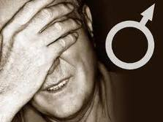 As an Institute that promotes sex and gender research, here is another blog of particular interest to the male side of the equation!
As an Institute that promotes sex and gender research, here is another blog of particular interest to the male side of the equation!
Experimental soy-based drug shows benefits in men with localized prostate cancer
CHICAGO --- Northwestern Medicine researchers at the Robert H. Lurie Comprehensive Cancer Center of Northwestern University have found that a new, nontoxic drug made from a chemical in soy could prevent the movement of cancer cells from the prostate to the rest of the body.
Genistein, a natural chemical found in soy, is being used in the lab of Raymond Bergan, M.D., the director of experimental therapeutics at the Lurie Cancer Center, to inhibit prostate cancer cells from becoming metastatic and spreading to other parts of the body. So far the cancer therapy drug has worked in preclinical animal studies and now shows benefits in humans with prostate cancer.
A recent phase II randomized study of 38 men with localized prostate cancer found that genistein, when given once a day as a pill, one month prior to surgery, had beneficial effects on prostate cancer cells.
Researchers examined the cancer cells from the subjects’ prostates after surgery and found that genistein increased the expression of genes that suppress the invasion of cancer cells and decreased the expression of genes that enhance invasion.
“The first step is to see if the drug has the effect that you want on the cells and the prostate, and the answer is ‘yes, it does,’” said Bergan, a professor of hematology and oncology at Northwestern University Feinberg School of Medicine and a physician at Northwestern Memorial Hospital.
The next step is to conduct another phase II study to see if the drug can stop the cancer cells from moving out of the prostate and into the rest of the body, Bergan said. If confirmed, Bergan said this could be the first therapy for any cancer that is non-toxic and targets and inhibits cancer cell movement.
“All therapies designed to stop cancer cell movement that have been tested to date in humans have basically failed have because they have been ineffective or toxic,” Bergan said. “If this drug can effectively stop prostate cancer from moving in the body, theoretically, a similar therapy could have the same effect on the cells of other cancers.”
Written by Erin White

 Our recent blog on male menopause has generated a number of questions, especially on the side effects of hormone treatments. I went back to Dr. Robert Brannigan, a Northwestern University urologist, who was quoted in our
Our recent blog on male menopause has generated a number of questions, especially on the side effects of hormone treatments. I went back to Dr. Robert Brannigan, a Northwestern University urologist, who was quoted in our  No, you did not open the wrong page. Yes, this blog is posted by the
No, you did not open the wrong page. Yes, this blog is posted by the  Low testosterone levels to blame for low libido, fatigue and weight gain
Low testosterone levels to blame for low libido, fatigue and weight gain